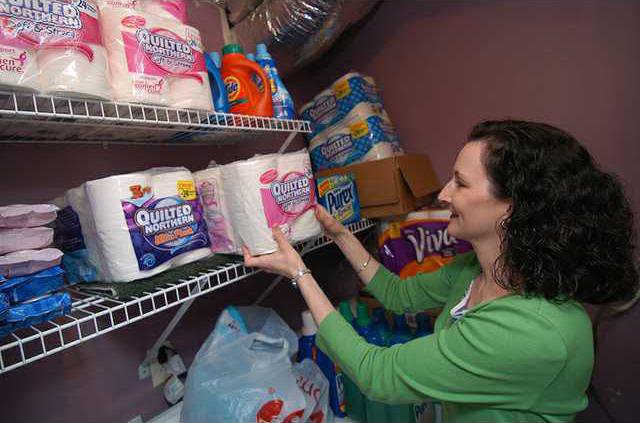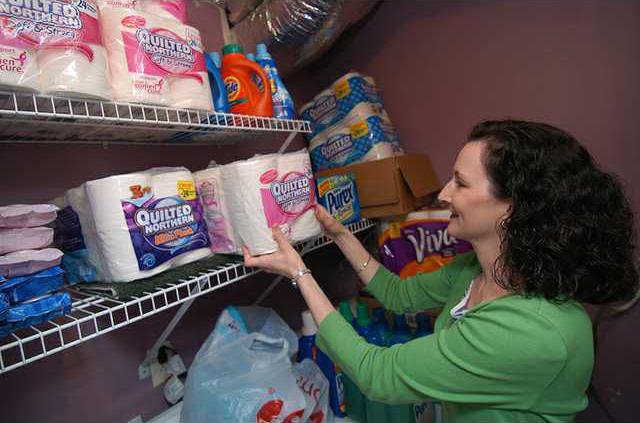In the current economic climate, most people are looking for ways to stretch their dollars. About a year ago, through a friend at our church, my wife Michelle (who contributed greatly to this column) discovered what is commonly referred to as "couponing." Through Michelle’s efforts, we have accomplished almost unbelievable things in our personal budget.
For example, we have not "paid" for toilet paper, toothpaste, razors, paper towels, shampoo, band-aids, etc. in nearly a year. And I’m talking about name-brand products, not store ones. Our grocery budget has been cut almost in half. For a family of six, this is no small feat.
The practice of couponing comes down to this: using manufacturer and store coupons paired with store sales, rebates and store loyalty programs, to drastically reduce the overall price of everything from food to toiletries to household items. This is usually accomplished by shopping at the large chain grocery stores and drug stores.
One goal of couponing is to "stockpile" things when they are at their lowest prices so you never have to pay full price for them again. This practice has resulted in our basement resembling a small convenience store. Thus, we have been able to share much more than we otherwise could with those struggling during these trying financial times. It is nothing now for us to fill up several bags with food and toiletry items for a family in need or to bless a new mom in our church with a gift basket of fun items.
In addition to saving money with couponing, we’ve found ways to help our family thrive in this depressed economy. Many companies offer mail-in-rebates so you can try their products for free. Other rebate offers, combined with an item being on sale, have allowed us to buy many products and make a small profit on them.
Another pleasant outcome of couponing is when "overage" occurs. This is when the value of the coupon exceeds the price of the item. Some stores will apply the overage amount to the remainder of your bill, thereby reducing the cost of other items.
Here’s one practical example on how couponing can result in free (plus sales tax) products: Say that at a drug store (large chain only), an item is on sale buy-one-get-one-free, and there is a manufacturer coupon on the same item that is also buy-one-get-one-free. Because of the way the item rings up at these drug stores (first item rings up full price; second one rings up zero), using the manufacturer coupon results in your having to pay only the sales tax to purchase both items.
It is somewhat rare when such a deal occurs, but we’ve done this several times on various products in the last year. Cashiers, and sometimes even store managers, can be somewhat dumbfounded at such a result, but most stores have official coupon policies explaining how they are to handle such, and any, transactions. (Michelle has become as well versed in official coupon policies as most anyone.)
Planning and coordinating when it comes to couponing is a feat made much easier by websites such as southernsavers.com (Michelle’s favorite), couponmom.com (mentioned frequently by Clark Howard), moneysavingmom.com and others.
There are some nuances to be aware of when practicing couponing. Different stores have different coupon policies, so you must familiarize yourself with these to make sure you are conducting your business properly. For example, some stores do not accept Internet coupons.
Remember always to be nice as you go about your couponing. As I mentioned before, many store employees may not be as familiar with their own coupon policies as you are. Also remember that coupon fraud does exist, so don’t be surprised if sometimes you are given a suspicious eye. After developing a sound relationship with your stores, your transactions will almost always go very smoothly.
According to southersavers.com, coupon use in the U.S. rose 27% in 2009 with $3.5 billion in coupons redeemed. Yet companies issued over $520 billion in coupons in 2009. This means that less than 1% of the value of all coupons issued last year was redeemed.
As the economy continues to flounder, taking advantage of the wonderful and abundant opportunities that coupons present is an excellent way for anyone to combat declining income and shrinking budgets. If you have further questions on this practice, feel free to contact us at tthomas@trevorgrantthomas.com.

